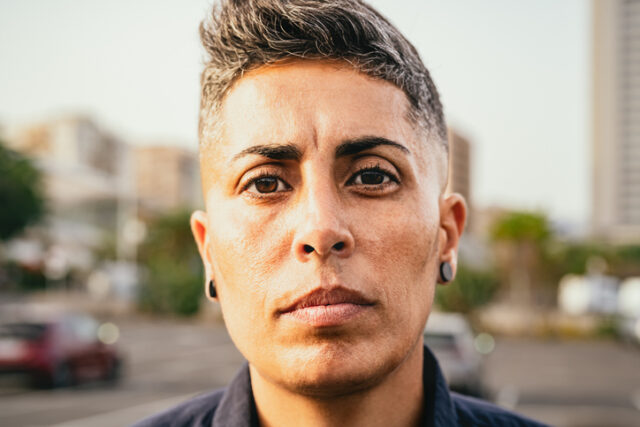Opening up and being vulnerable is often easier said than done.

It’s a leap of faith, a step into the unknown, and it’s natural to feel a bit scared. Here are some reasons why vulnerability might feel like a daunting task.
1. You fear rejection or judgment.

Sharing your insecurities or struggles can feel like exposing yourself to potential criticism or disapproval. It’s a vulnerable position to be in, and the fear of being rejected or judged for your flaws can be paralysing. But remember, everyone has imperfections, and genuine connection often comes from embracing those imperfections, not hiding them.
2. You’ve been hurt or betrayed in the past.

If you’ve experienced painful situations where your vulnerability was taken advantage of or used against you, it’s understandable to be hesitant to open up again. Trust can be fragile, and past wounds can leave lasting scars. But by allowing yourself to be vulnerable with safe and supportive people, you can gradually rebuild trust and heal those emotional injuries.
3. You equate vulnerability with weakness.

In a society that often values strength and resilience, vulnerability can be mistakenly perceived as a weakness. But in reality, it takes courage to expose your true self and share your struggles. Vulnerability is not a sign of weakness; it’s a testament to your strength and resilience to face your fears and open your heart to people.
4. You believe that you need to be perfect to be loved.

Many of us grow up with the belief that we need to be perfect to be accepted and loved. This can create immense pressure to hide our flaws and insecurities, leading to a fear of vulnerability. But true love and acceptance come from embracing our imperfections, not pretending they don’t exist.
5. You don’t want to burden anyone with your problems.

You might hesitate to share your struggles because you don’t want to burden people. You might think that your issues are insignificant compared to what other people are going through, or that you should be able to handle them on your own. But remember, everyone needs support sometimes, and sharing your burdens can actually strengthen your relationships and create a deeper sense of connection.
6. You’re afraid of losing control.

When you open up and share your emotions, it can feel like you’re losing control of yourself and the situation. You might worry about becoming overwhelmed by your feelings or being perceived as “too emotional.” But allowing yourself to experience and express your emotions is a healthy and important part of being human. It doesn’t mean you’re out of control; it means you’re in touch with your authentic self.
7. You find it hard to trust your own emotions.

If you’ve been taught to suppress or invalidate your emotions, it can be difficult to trust them and allow yourself to be vulnerable. You might question the validity of your feelings or feel ashamed of them. But emotions are valuable sources of information, and learning to trust and honour them is essential for emotional well-being and healthy relationships.
8. You’re afraid of what you might discover about yourself.

Sometimes, the fear of vulnerability stems from a deeper fear of what we might discover about ourselves. We might worry that if we truly open up, we’ll uncover aspects of ourselves that we don’t like or that we’ll be confronted with painful truths about our lives. But self-discovery is a lifelong journey, and embracing vulnerability can be a powerful tool for growth and transformation.
9. You worry that vulnerability will be used against you.

Sharing your vulnerabilities can feel like giving someone ammunition to use against you in the future. It’s a legitimate concern, especially if you’ve experienced situations where your trust was violated. But it’s important to remember that not everyone will exploit your vulnerability. By choosing trustworthy and compassionate confidants, you can minimise the risk and create a safe space for open communication.
10. You’re afraid of change and the unknown.

Vulnerability often opens the door to change and growth, but change can be scary. It can disrupt familiar routines and challenge our sense of identity. Embracing vulnerability might mean facing uncomfortable truths or making difficult decisions. But by stepping outside of your comfort zone, you can unlock new possibilities and create a more fulfilling life.
11. You’re afraid of losing your independence.

Vulnerability can sometimes be associated with dependence, and if you value your independence, you might resist opening up to people. You might worry that by relying on other people for support, you’ll lose your autonomy or become a burden. But true vulnerability is not about becoming dependent; it’s about recognising that we’re all interconnected and that we need each other to thrive.
12. You’re afraid of intimacy and emotional connection.

Vulnerability is a key ingredient for intimacy and emotional connection, but if you’re afraid of getting close to anyone, you might resist being vulnerable. You might fear getting hurt, losing yourself in the relationship, or not being able to live up to people’s expectations. But true intimacy is built on trust, vulnerability, and a willingness to share your true self with another person.
13. You’re afraid of not being enough.

Beneath the fear of vulnerability often lies a deeper fear of not being enough. You might worry that if you show your true self, you’ll be rejected or abandoned because you’re not good enough, smart enough, or successful enough. But everyone has insecurities, and embracing your imperfections is part of what makes you unique and lovable.
14. You’re afraid of facing your own pain.

Vulnerability can bring up buried emotions and unresolved pain. It can force you to confront difficult experiences and acknowledge your own suffering. This can be overwhelming and scary, but it’s also an essential step towards healing and growth. By facing your pain with courage and compassion, you can free yourself from its grip and move forward with renewed strength.
15. You’re afraid of letting go of control.

Vulnerability requires letting go of control and surrendering to the unknown. It means accepting that you can’t always predict or control how people will react or how things will unfold. This can be unsettling, but it’s also liberating. By letting go of the need for control, you open yourself up to new experiences, deeper connections, and unexpected joys.
16. You’re afraid of what other people might think of you.

Perhaps the most common fear associated with vulnerability is the fear of what other people might think of us. We worry that if we reveal our true selves, we’ll be judged, ridiculed, or ostracised. But other people’s opinions don’t define who we are. By embracing vulnerability and living authentically, we free ourselves from the need for external validation and create space for genuine connection with people who appreciate us for who we truly are.




